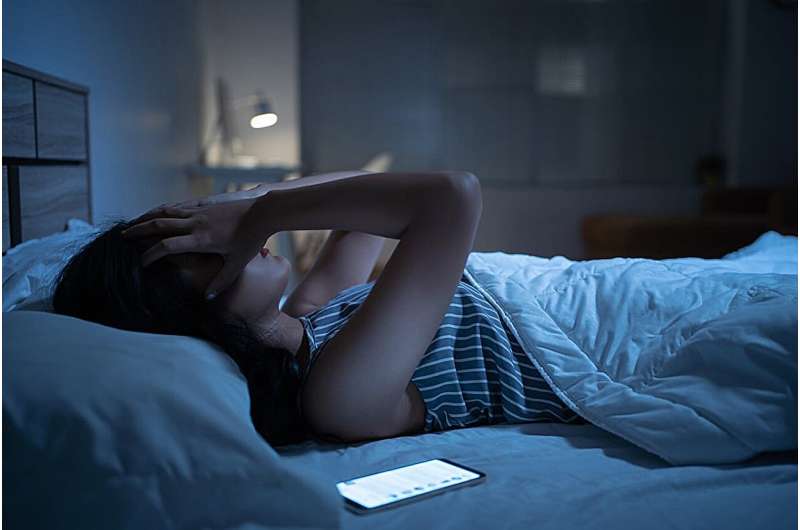
Many young adults are experimenting with “bed rotting” and other sleep trends that have gone viral on TikTok and other social media platforms, a new poll shows.
Sleep experts say these trends likely won’t do any immediate harm, but they add that people would do better to see a doctor if they’re not getting adequate nighttime rest.
“It is critical to differentiate whether the reason for experimenting with new ‘sleep trends’ is because of existing difficulties with sleep or unsatisfactory wakefulness, as utilizing trends like ‘bed rotting’ may actually worsen the sleep problem you may be experiencing,” said Dr. Anne Marie Morse, a sleep medicine physician for Geisinger Health System in Pennsylvania.
About 37% of Americans have tried one or more of this year’s viral sleep trends, according to the new survey from the American Academy of Sleep Medicine (AASM).
Members of Generation Z in particular are experimenting with these trends, with 55% saying they’ve tried at least one.
“Bed rotting” has become particularly popular. It involves staying in bed, sometimes for up to a day or more, with hopes of improved rest even as the person engages in activities other than sleep, experts explained.
About a quarter of Gen Zers (24%) said they’d tried bed rotting, the survey found.
This trend reflects a broader shift in how people use their time in bed, experts said. More than half (51%) of people spend more than 30 minutes in bed before trying to go to sleep, and 27% say they linger in bed most mornings before getting up.
“These trends may not be inherently harmful, but it’s important to remember that the bed’s primary purpose is for sleep,” said Morse, a spokeswoman for the AASM.
“The intentional practice of maintaining healthy sleep habits, like a consistent sleep schedule with regular timing of bedtime and waking and not going to bed unless you are sleepy, will serve as a positive reinforcement of the bed being a place for sleep and is essential for maintaining ease of falling and staying asleep,” Morse added in an AASM news release.
Other sleep trends include experiments with so-called “natural sleep aids” and different sleep routines.
Nearly 9% of people have tried drinking magnesium, known as the “sleepy girl mocktail,” while another 9% have tested the effectiveness of sleeping in 90-minute increments, the survey found. This practice is notably popular among Gen Z, with 15% having tried it.
Social sharing about sleep practices is so popular that people have even tuned in to livestreams of others sleeping (8%) or have live-streamed their own sleep (7%), the poll showed.
“As an avid social media contributor, I attempt to be a resource for all things sleep across platforms, and it is exciting to see increasing awareness and socialization about optimizing sleep, rather than the continued stigma, perpetuation and even championing of ‘getting away with’ less sleep,” said Morse.
“Sleep problems are common and treatable; however, the right solution for the specific issue at hand is necessary,” Morse added.
As a rule, the AASM recommends that adults get seven or more hours of sleep each night and stick to a regular sleep/wake schedule.
People struggling to get good sleep should keep a sleep diary for a week or two and then share it with their doctor, experts said.
More information:
The Sleep Foundation has more on good sleep hygiene.
Copyright © 2024 HealthDay. All rights reserved.
Citation:
Are ‘bed rotting’ and other TikTok sleep trends good for you? (2024, August 24)
retrieved 5 September 2024
from https://medicalxpress.com/news/2024-08-bed-tiktok-trends-good.html
This document is subject to copyright. Apart from any fair dealing for the purpose of private study or research, no
part may be reproduced without the written permission. The content is provided for information purposes only.



